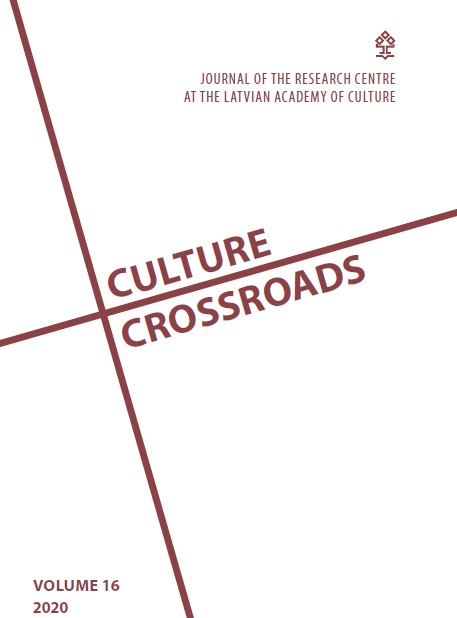ARTISTS AND CULTURAL WORKERS AND THE LEGACY OF KGB IN THE ACTUAL PUBLIC DISCUSSION LANDSCAPE IN LATVIA
ARTISTS AND CULTURAL WORKERS AND THE LEGACY OF KGB IN THE ACTUAL PUBLIC DISCUSSION LANDSCAPE IN LATVIA
Author(s): Liena Galeja, Ojārs StepensSubject(s): Cultural history, Government/Political systems, Post-War period (1950 - 1989), Transformation Period (1990 - 2010), Sociology of Art, History of Art
Published by: Latvijas Kultūras akadēmija
Keywords: cultural workers; KGB; collaboration; agents;
Summary/Abstract: The purpose of this paper is to examine how myths, narratives and biases referring to the recent history are born and developed in nowadays Latvia, supported by the analysis of the case study of the legacy of KGB and its actualization in the public discussion landscape focusing on the relationship of KGB and artists and cultural workers. One of the main criteria for narrowing the research subject to regarding only the relationship between representatives of the fields of arts and culture and KGB is that those particular relationship cases have caused the most heated discussions in mass media and general public, mostly due to the undeniable public ‘visibility’ of the aforementioned professionals as well as due to personal in-depth connection of society members with art products, artists and cultural workers via artistic preferences, engagement with cultural processes, individual contribution to professional and amateur arts, emotional links, memories etc. Another important aspect to be considered is the strong connectedness of arts and culture with the state apparatus, as throughout history arts and cultural production has served as a propaganda tool, putting forward regime ideology and granting a certain kind of ‘power legitimization’ as supported by entertainment industry. In order to get a deeper insight into the formation of the myths, narratives and biases referring to the relationship between artists and cultural workers in nowadays Latvia, the authors of the study have combined empiric data analysis based on the research project by the Government Commission for KGB Research at the University of Latvia, the purpose of which was to prepare KGB card files for public access on the website of the National Archives of Latvia, and qualitative media and public discussion narrative analysis, focusing on how certain aspects referring to Soviet legacy in general and specifically to cooperation between artists and cultural sector workers and KGB have been framed and portrayed in actual social memory representations.
Journal: Culture Crossroads
- Issue Year: 16/2020
- Issue No: 1
- Page Range: 77-86
- Page Count: 10
- Language: English

